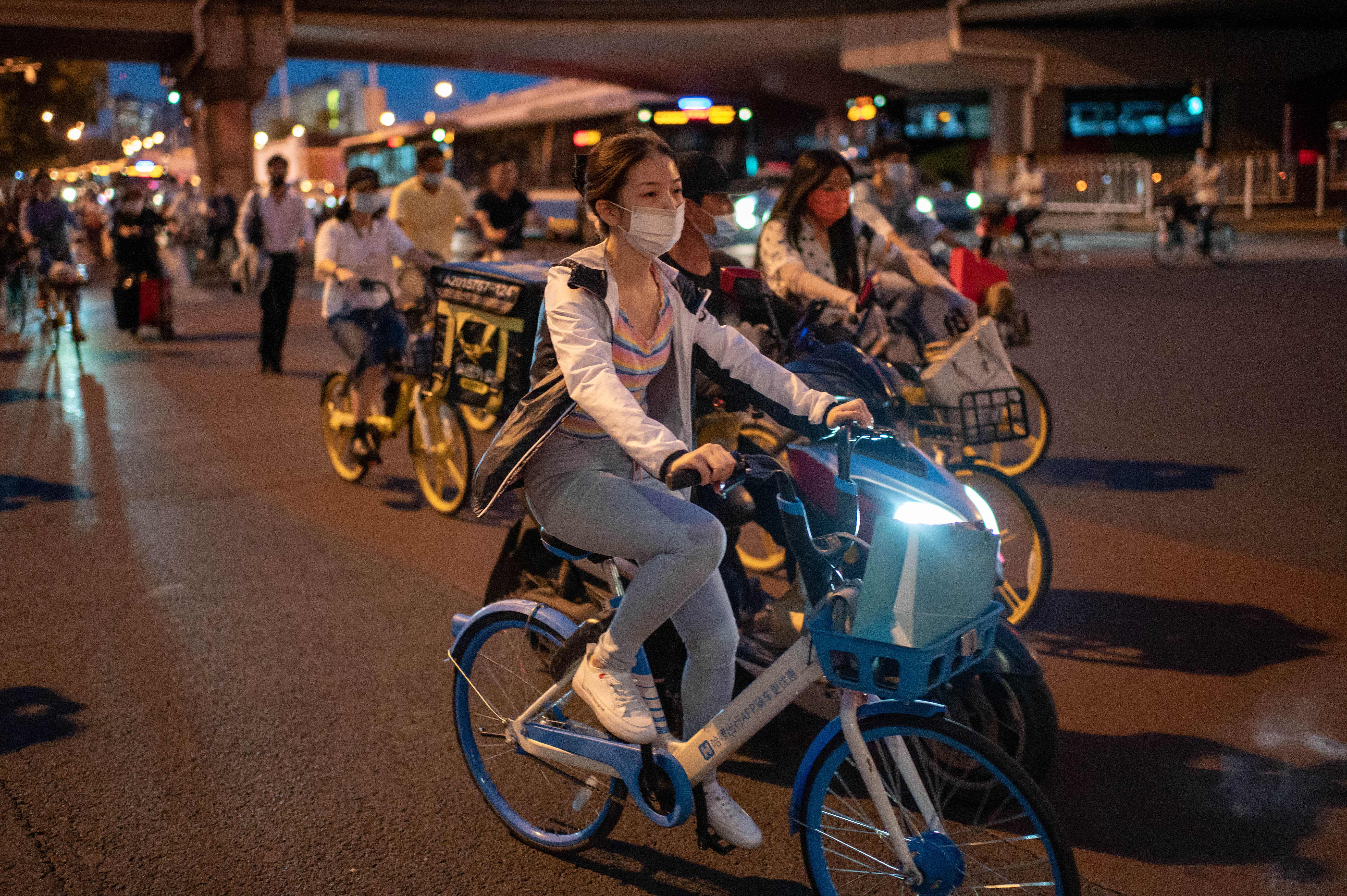
BEIJING — The economic recovery in China from the shock of the coronavirus is only happening in part of the country, according to an independent survey by the China Beige Book released Thursday.
The world’s second-largest economy was the first country to get hit by the coronavirus pandemic. More than half the country shut down in early February in an effort to limit the spread of the virus, contributing to a 6.8% contraction in growth in the first quarter. As the outbreak of the disease stalled in March, businesses began to reopen, and the official gross domestic product grew 3.2% in the second quarter.
Government-released data in the months since have pointed to further recovery overall. China economists from Nomura expect third-quarter GDP to grow 5.2% from a year ago.
An independent survey of more than 3,300 businesses in the country between Aug. 13 and Sept.12 shows that growth story is intact — in the wealthier, coastal regions, according to the China Beige Book’s early look brief. The firm conducts the survey quarterly.
“For large firms and those based in the Big 3 coastal regions surrounding Shanghai and Beijing, as well as Guangdong–the corporate elite–the economy is accelerating. This is the public face of Beijing’s recovery narrative,” the report said. “But the rest of China — most firms in most regions — are seeing a far more muted recovery. (Small and medium-sized enterprises) and companies outside the core are earning, selling, investing, and borrowing far less than their counterparts.”
The analysis found that third-quarter revenue and profit in every region fell double-digits from a year ago, while most provinces in the landlocked parts of the country saw output and domestic orders decline from the prior quarter.
Jobs situation stabilizes
Employment, which is a priority for the central Chinese government, did see broad improvement in the third quarter, according to the survey. Manufacturing saw the fastest gains in hiring, while retail showed the greatest improvement in sales volume and prices, the China Beige Book said.
“Geographically, labor market conditions were better than Q2 in every region,” Shehzad Qazi, managing director at China Beige Book, said in an email. “That said, hiring was strongest on the coast, with locales like Shanghai seeing nearly twice the job growth of numerous interior provinces.”
The official, but highly doubted, unemployment rate as measured by the official survey of cities was 5.6% in August, 0.1 percentage points lower than July, the National Bureau of Statistics said last week.
Other underlying concerns
However, again, the broad recovery masks remaining challenges in sectors such as services, which has employed a growing portion of Chinese over the last several years as the government tries to boost the economy’s reliance on consumption for growth.
Borrowing actually declined among services firms, which were twice as likely to be rejected for loans as businesses in property, Qazi said.
“The primary Covid impact now seems to be on Services, which saw only marginal improvement over Q2 in revenue, profits, and sales prices, along with no uptick in hiring,” the third quarter brief said. “Either consumers aren’t convinced that Covid is under control or the long-anticipated rise of Services is in greater jeopardy.â€
Looking at the longer-term growth prospects of the Chinese economy, other analysts are pointing to other issues that remain unresolved.
“China faces more risks on its current path than is commonly understood and that the country has encountered incidents of stress within its financial system that could have spread to broader crises,” Logan Wright, Lauren Gloudeman, and Daniel H. Rosen from consulting and research firm Rhodium Group said in a report titled “The China Economic Risk Matrix” released on Wednesday.
“Cycles in the property sector strike at the heart of some of Beijing’s vulnerabilities in containing financial stress. There is no strong record of policymakers in any country being able to deflate a sizable property bubble without negative consequences,” the authors wrote.
They did point out that most analysts, under the presumption that the Chinese government has the will and capacity to intervene, generally describe authorities’ management of economic problems so far as: “When they want to do something, they can usually do it.”


